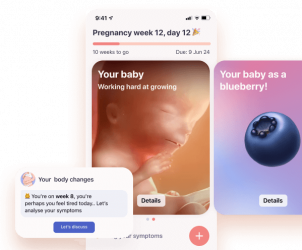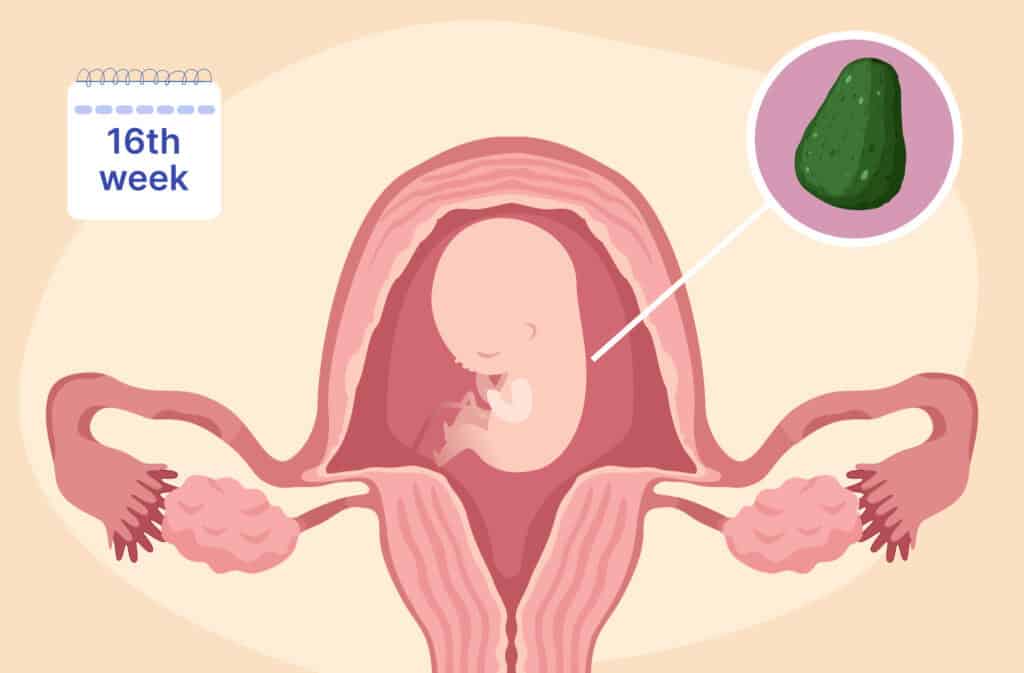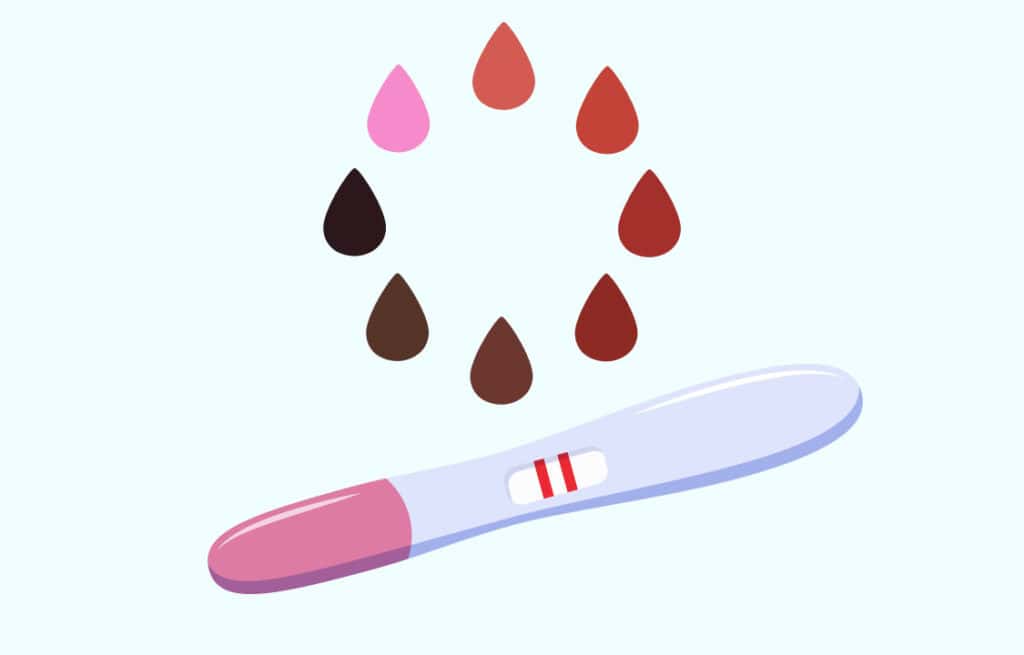Femia > Health Library > Pregnancy > Pregnancy health > Orgasms during pregnancy: Your questions and concerns answered
Orgasms during pregnancy: Your questions and concerns answered

- Updated Mar 2, 2025
- Published
CRAFTED BY HUMAN
Crafted by human At Femia, we provide accurate and up-to-date information at every stage of your journey, from trying to conceive, pregnancy and postnatal support. All content is created by a real person based on in-depth research and own professional experience. Femia ensures that you will receive expert advice, strict accuracy and a personalized approach from our authors/medical experts. Learn more about our editorial policy.
FACT CHECKED
Fact checked At Femia Health, we maintain the highest standards of editorial excellence in delivering content focused on helping you conceive, guiding you through pregnancy, and supporting you postpartum. Explore our content review principles to learn how we ensure the accuracy and quality of our health and lifestyle tips for every stage of your journey.
Having sex while pregnant is overall safe and good for your physical and emotional state. Orgasms are not likely to hurt the baby in any way, cause miscarriage, or induce labor. Pregnancy sex during the last trimester may require a bit more skill, but all it takes is finding a comfortable position. In the same spirit, masturbation is also pregnancy-approved.
Have you been feeling the desire for sexual release, during pregnancy, but worry about the safety of your baby? Having an orgasm while pregnant can cause anxiety, especially during the later stages of pregnancy. According to the results of a survey conducted on 261 pregnant women, more than stated that they refrained from sex while pregnant because of fear. Is there really a reason to worry?
When it comes to sexual pleasure during pregnancy, you may feel confused by all the conflicting information out there. However, we are here to provide medically accurate information and help you make an informed decision. Let’s break it down.

Orgasms during pregnancy: an overview
For most women, having sex while pregnant and experiencing orgasms is perfectly safe. How do we know? Let’s break down the facts about pregnancy sex dynamics.
If you are having penetrative sex with a man, his penis cannot go beyond your vagina and reach the baby in your uterus. The uterus has thick muscles that provide mechanical protection for your baby, while its entrance (cervix) is sealed with thick mucus to prevent infection. Moreover, the baby is floating in a protective bag filled with fluid, also known as the amniotic sac. In simple words, the baby is tucked in and sealed off, unaware of what might be going on next door.
Do the benefits of pregnancy orgasms outweigh the risks for most women? Absolutely. Let’s take a look at the physical and emotional benefits of allowing yourself to orgasm while pregnant.
- Sleep like a baby. The hormone mix that gets released during orgasms, which includes endorphins, might improve the quality of your sleep.
- Stress relief. Chemicals released in your brain, such as oxytocin and endorphins, may alleviate anxiety and stress and improve your general well-being.
- Bonding with your partner. Sexual intimacy can foster a sense of support and closeness with your partner during pregnancy.
- Strong pelvic floor muscles. Pregnancy sex may strengthen your pelvic muscles, which means good prospects for vaginal delivery as well as easier recovery after giving birth.
- Increased blood flow. Increased blood flow to the pelvic area may relate to higher-intensity orgasms.
- Immune system boost. A healthy sex life may help your immune system work better, which is very important during pregnancy.
👉Find out more: When to start perineal massage: A comprehensive guide.

Does orgasm cause miscarriage in the first trimester?
It is natural to want to avoid behaviors which may be risky for a pregnancy, especially in the first trimester. We understand why you, or your partner, might want to play it safe.
But, can orgasm cause miscarriage in the first trimester, really? Most likely, no.
Medical perspective
Losing a baby during the first trimester, which is when the majority of miscarriages occur, is most likely not going to be your fault. The problem often lies with the pregnancy itself.
- Chromosome problems. Most first-trimester miscarriages happen when there is abnormality with the baby’s genetic material. Sometimes, babies get too many or not enough chromosomes. This may result in conditions likely to end in spontaneous and natural miscarriage. These conditions are called trisomies, triploidies, or monosomies. Think of early miscarriages as nature’s way of ensuring you give birth to a healthy baby.
- Uterine changes. Although not very common, there are some uterine shapes which may increase the chance of early pregnancy loss. This can include a septate uterus or something called a unicornuate uterus.
- Autoimmune conditions. In cases of recurrent early pregnancy loss, there might be an autoimmune condition which requires evaluation. This is called antiphospholipid antibody syndrome.
Is it safe to have an orgasm in the third trimester?
As your pregnancy belly is approaching full term, your concern over the safety of sex might grow as well. Many pregnant ladies can’t help but wonder: is it safe to have an orgasm in third trimester?
The answer to this question is rather simple. Are you having a high-risk pregnancy? If not, there is not much reason to worry. It is generally safe to enjoy sex during the third semester of pregnancy for most women with uncomplicated pregnancies. After all, your baby is well-protected in your uterus.
However, sometimes, it may be best to abstain until after the baby arrives.
Let’s take a look at particular situations where avoiding vaginal penetration and/or orgasm is best. If in doubt, it is always a good idea to consult with your healthcare provider.
- A history of preterm labor;
- Unexplained vaginal bleeding;
- Problems with the placenta, such as a condition called placenta praevia;
- Problems with the cervix, such as premature dilation;
- Having twins;
- Having your amniotic sac ruptured (broken “bag of water”).
Is masturbation during pregnancy safe?
Pregnancy brings about many unexpected changes, and for many women this includes increased libido. So, it’s common to wonder whether masturbation during pregnancy is safe.
The good news is: unless you are having a high-risk pregnancy, and orgasms are temporarily off the table, masturbation is just as safe as penetrative sex. In fact, it can benefit your health in almost all the same ways as sex with your partner. Think stress and anxiety relief, relaxation, better sleep, mood-lifting, and even pain relief. Orgasms strengthen the muscles of the pelvic floor, which will be very much needed to push out that child.
But, whether we’re talking masturbation or sex with a partner, you still have to be safe. Here are some much-needed tips:
- Hygiene, hygiene, and hygiene. This is a good time to be a clean freak. Always wash your sex toys and hands with water and mild soap to prevent infections.
- Be gentle. Avoid vigorous or rough stimulation, especially if you are using sex toys. Size down if you have to.
- Make yourself comfortable. Touching yourself during pregnancy is more of a ballet dance as opposed to acrobatics. Avoid any positions that put pressure on your abdomen, and use pillows.
- Get lube, even if you’ve never needed it before. Hormonal changes during pregnancy may affect lubrication down there. Go for a water-based lubricant to reduce friction.
👉Find out more: Reverse Kegels: What they are, how to do them, and their benefits.

Can having an orgasm cause bleeding while pregnant?
Can having an orgasm cause bleeding while pregnant? Well, yes and no. There might be some light bleeding or spotting, but this is typically not a reason for concern.
Blood flow in the pelvic area, vagina, and cervix is increased during pregnancy. Moreover, your cervix is super sensitive at this time, and orgasms can cause light contractions of the womb.
If you have had vaginal penetration, with a partner, finger, or toy, the cervix may become slightly irritated and result in bloody discharge or spotting. This is understandable. However, having bleeding like a prior should always be evaluated by a healthcare professional.
Here are some things to have evaluated as soon as possible:
- Heavy bleeding. If it looks anything like your normal period, it’s not supposed to happen.
- Prolonged bleeding. Orgasms may trigger a temporary effect, but it should not last for an extended period.
- Severe pain. Intense cramping or pain, coupled with bleeding, is not a typical consequence of pregnancy orgasms.
- A history of complications. If you have previously had conditions such as placenta previa or cervical problems, take bleeding after sex more seriously.
If you experience any of the above complications, it’s time to talk with your healthcare provider. They will do a checkup just to be sure and help you relieve any concerns about sexual activity while pregnant.
Questions from the Femia community
Can orgasms induce labor?
A lot of soon-to-be mamas are wondering whether having an orgasm can induce labor, especially in the last trimester.
Nipple and genital stimulation may induce the release of oxytocin and prostaglandins—the chemicals that cause cervical opening and womb contractions. However, orgasm-related contractions of the uterus are typically nowhere near strong enough to induce labor. The only way that having an orgasm might get you there is if your body is already preparing for labor.
Is it normal to have more intense orgasms during pregnancy?
A woman’s body undergoes many changes during pregnancy. Sometimes, these changes will make you wonder whether your body is truly yours. But, are you ready for some good news? It is perfectly normal to experience more intense orgasms during pregnancy. It is also not that unusual—and much appreciated.
This is due to various reasons:
• The increased blood flow to the genital area may make you more sensitive;
• There is natural engorgement of sensitive tissue;
• Of course there as those hormonal changes. These hormone bring changes to the pelvic area as well as your brain.
Is cramping after orgasm normal during pregnancy?
Yes, orgasms can cause mild cramps during pregnancy. This happens as your uterus starts to contract during an orgasm and might cause slight discomfort. There is usually no need for alarm, as the cramps should go away on their own.
It might be a good idea to practice some relaxation techniques or just lie down until the painful sensations pass. If the pain gets stronger or persists for a longer time, make sure to consult with your healthcare provider.
Can sexual activity harm the baby?
Your baby is well-protected in your uterus. It’s a safe and cozy place to be, surrounded by strong muscles and the amniotic sac. Regular sexual activity will not harm your baby during a normal pregnancy.
In fact, a study of 39,217 pregnancies found no correlation between having sex at different periods of pregnancy and bad pregnancy outcomes. Babies were born healthy, even when parents had sex during the last trimester.
How can I talk to my partner about my changing sexual needs?
Having your sexual needs change is a natural part of pregnancy. You should be able to talk with your partner about your desires, comfort, and concerns during this time.
Be open and straightforward. Make sure to pick the right time and place. Explain how you feel, and help them understand what you need. Be ready to listen and empathize. After all, being vulnerable can only help you grow closer together.
Are there any sexual positions that are safer during pregnancy?
Sex may be safe during pregnancy, but it is not all that easy. It might require some strategic thinking and altering your usual ways. The main goals: both you and your baby’s comfort and safety. Using a sex app can offer tips and guidance on safe and comfortable positions for pregnancy sex, helping you maintain intimacy and prioritize both physical and emotional well-being during this special time.
Having your partner on top can be uncomfortable because of the baby bump. Try to experiment with new positions: lie on your side, be on top, or have your partner penetrate you from behind. Use pillows to make yourself comfortable.
The bottom line
Having an orgasm while pregnant is generally safe and beneficial for your overall health and wellbeing. There should be no negative consequences for your baby, thanks to the protection of the uterus and the amniotic sac. The risk of miscarriage or induced labor remains very low.
Still, having sex might not be safe if you are having a high-risk pregnancy. It is always the best idea to consult with your healthcare providers for personalized advice. They will also address any specific concerns you may have.
References
- Beveridge, Jaimie K., et al. “Fear-Based Reasons for Not Engaging in Sexual Activity during Pregnancy: Associations with Sexual and Relationship Well-Being.” Journal of Psychosomatic Obstetrics & Gynecology, vol. 39, no. 2, Apr. 2018, pp. 138–45. Taylor and Francis+NEJM, https://doi.org/10.1080/0167482X.2017.1312334.
- Brody, Stuart. “The Relative Health Benefits of Different Sexual Activities.” The Journal of Sexual Medicine, vol. 7, no. 4_part_1, Apr. 2010, pp. 1336–61. Silverchair, https://doi.org/10.1111/j.1743-6109.2009.01677.x.
- Jones, Claire, et al. “Sex in Pregnancy.” CMAJ, vol. 183, no. 7, Apr. 2011, pp. 815–18. www.cmaj.ca, https://doi.org/10.1503/cmaj.091580.
- Klebanoff, MarkA., et al. “COITUS DURING PREGNANCY: IS IT SAFE?” The Lancet, vol. 324, no. 8408, Oct. 1984, pp. 914–17. ScienceDirect, https://doi.org/10.1016/S0140-6736(84)90665-2.
- MacPhedran, Sally E. “Sexual Activity Recommendations in High-Risk Pregnancies: What Is the Evidence?” Sexual Medicine Reviews, vol. 6, no. 3, July 2018, pp. 343–57. Silverchair, https://doi.org/10.1016/j.sxmr.2018.01.004.
- “Miscarriage – Causes.” National Health Service (NHS), 7 Dec. 2017, https://www.nhs.uk/conditions/miscarriage/causes/.
- Oesterling, Carlotta Florentine, et al. “The Influence of Sexual Activity on Sleep: A Diary Study.” Journal of Sleep Research, vol. 32, no. 4, Aug. 2023, p. e13814. PubMed, https://doi.org/10.1111/jsr.13814.
- “Sex during Pregnancy: Questions and Concerns.” National Childbirth Trust (NCT), 3 Aug. 2022, https://www.nct.org.uk/pregnancy/relationships-sex/sex-during-pregnancy-questions-and-concerns.
- “Sex in Pregnancy.” National Health Service (NHS), 2 Dec. 2020, https://www.nhs.uk/pregnancy/keeping-well/sex/.
- “Sex in Trimester One, Two and Three of Pregnancy.” National Childbirth Trust (NCT), 4 Apr. 2024, https://www.nct.org.uk/pregnancy/relationships-sex/sex-trimester-one-two-and-three-pregnancy.

When is it safe to orgasm after giving birth? Discover the optimal timeline and general guidelines for resuming sexual activity after delivery.

Discover what happens at 16 weeks pregnant, from baby’s growth and ultrasound insights to belly changes and self-care tips.

Discover the timings and symptoms of successful implantation with and without bleeding and how long after implantation bleeding you can test for pregnancy.

